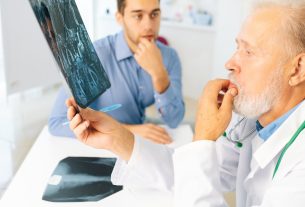Further information
The UK-Japan collaborations
Engineering biology for discovery research and cross-cutting technologies
In this bilateral partnership, BBSRC and JST are addressing pioneering questions that push the boundaries of engineering biology by investing in five new research projects.
Each project is supported by up to £1 million funding over three years, matched with a total commitment from JST of 1.17 billion Japanese yen (JPY).
The projects aim to revolutionise industries such as healthcare, biomanufacturing and agriculture. The five projects receiving funding are:
Data-driven multiscale engineering of cell fate decisions
Led by Professors Richard Bayliss (University of Leeds) and Mariko Okada (Osaka University)
This project aims to engineer cells that can consistently respond to therapeutic drugs, potentially transforming cancer treatment.
Engineering sustained function in synthetic cells through energy generation, storage and transformation (Japan-UK SYNERGY)
Led by Professors Oscar Ces (Imperial College London) and Masahiro Takinoue (Institute of Science Tokyo)
This project aims to develop technologies that will enable synthetic cells to function longer by efficiently managing biochemical energy.
A bioengineering platform for creating agriculturally-applicable sentinel plants
Led by Dr Karen Sarkisyan (Imperial College London) and Professor Fyodor Kondrashov (Okinawa Institute of Science and Technology)
This project aims to create plants that change colour in response to pest attacks, providing real-time monitoring of crop health.
Japan-UK collaboration for artificial photosynthetic cell systems
Led by Professors Wei Huang (University of Oxford) and Hiroyuki Noji (The University of Tokyo)
This project focuses on converting carbon dioxide into bioproducts, enhancing sustainability and addressing climate change.
Orthogonal phages from non-linear sequence topologies: towards an artificial phage-host system
Led by Dr Max Ryadnov (National Physical Laboratory) and Professor Hiroaki Suga (The University of Tokyo)
This project aims to develop a novel phage system using unconventional amino acids that target specific pathogens.
Engineering biology for novel therapies and diagnostics research collaboration
MRC and the Japan Agency for Medical Research and Development (AMED) are fostering competitive partnerships to leverage engineering biology for novel therapies and diagnostics.
Supporting vital synergies between international researchers with shared or complementary interests, MRC is committing up to £3 million for the UK research components. AMED is contributing approximately JPY 158 million per project over a three-year period. The investment supports three research collaborations, including:
Creating anti-senescence cell fate by engineering the chromatin landscape
Led by Masashi Narita (University of Cambridge) and Yasuyuki Ohkawa (Kyushu University)
Building on a novel technology, this research aims to create new anti-ageing cells. Using innovative single-cell gene profiling, the international team hopes to understand cell communication at the molecular level, uncovering therapeutic targets for age-associated degenerative disorders and gene regulatory mechanisms.
Artificial cells for highly sensitive and robust diagnosis of pathogen infections (ACROPATH)
Led by Paul Beales (University of Leeds) and Yoshihiro Shimizu (RIKEN: The Institute of Physical and Chemical Research)
Using complementary expertise from Japan and the UK, this project takes an engineering biology approach to develop artificial cells (artCells) that can bind to and identify intact pathogenic bacteria in a sample.
The approach is based on the generation of artificial sensors which, upon detecting specific pathogens, activate a visible response that can be detected using commonly available laboratory equipment. When combined with engineering biology, the artCell will be able to detect markers of antibiotic resistance, reducing the time needed to treat patients.
The versatile artCell can be readily adapted to detect different pathogens, improving the efficiency of patient diagnosis and treatment.
Engineering human axioloids to produce in vitro human kidneys better than current kidney organoids and disease modelling using them
Led by Jamie Davies (University of Edinburgh) and Cantas Alev (Kyoto University)
This research aims to create novel and more realistic models of human kidneys by combining expertise in advanced engineering of stem-cell derived models from Kyoto University and synthetic biology from the University of Edinburgh.
The fully characterised ‘mini-organs’ will be used to demonstrate modelling of a relatively common and serious congenital kidney disease to better understand the disease process and identify treatments. The approach has the potential to be later applied to engineering other organs.
Joint opportunity in semiconductor research
This EPSRC-JST investment supports internationally competitive collaborative teams carrying out semiconductor focused research. The three projects funded aim to advance technology in power electronics, semiconductor photonics and low power hardware for AI:
UP-SiC: unlocking the future potential of silicon carbide in power electronics
Led by Florin Udrea (University of Cambridge) and Tsunenobu Kimoto (Kyoto University)
This project aims to enhance silicon carbide’s carrier mobility for high voltage and power applications, significantly reducing carbon emissions.
Heterogeneous material integrated micro-electro-mechanical systems (MEMS)/nano-electro-mechanical systems (NEMS)-photonics platform for secure communication (HetMEPS)
Led by Yoshishige Tsuchiya (University of Southampton) and Nobuhiko Nishiyama (Institute of Science Tokyo)
This project aims to create a MEMS/NEMS-photonics platform for secure information communication technology hardware, reducing energy consumption and advancing quantum secure communication.
Building silicon brain cube for green and trustworthy AI
Led by Wayne Luk (Imperial College London) and Masato Motomura (Institute of Science Tokyo)
This project aims to develop 3D hardware architecture to improve energy efficiency and trustworthy AI processing.
AI for bioscience
As the transformative power and potential of AI continues to ripple around the world, researchers from the UK and Japan are partnering up as part of a wider multilateral investment to leverage AI in a bid to accelerate innovation across the biosciences.
Backed by a £7.6 million BBSRC investment, the funding supports 32 research collaborations around the world, two of which feature the UK and Japan.
Dr David Labonte and Dr Fabian Plum at Imperial College London are working with researchers from Japan and Germany to combine deep learning-based computer vision with synthetic data to develop approaches that can measure the 2D and 3D position and posture of animals.
This innovative project has the potential to drive transformation in a number of areas such as neuroscience, sport, healthcare and conservation science.
Meanwhile, Anthony Dodd from the John Innes Centre is collaborating with Japanese colleagues to explore the use of AI in predicting plant growth in naturally fluctuating conditions.



